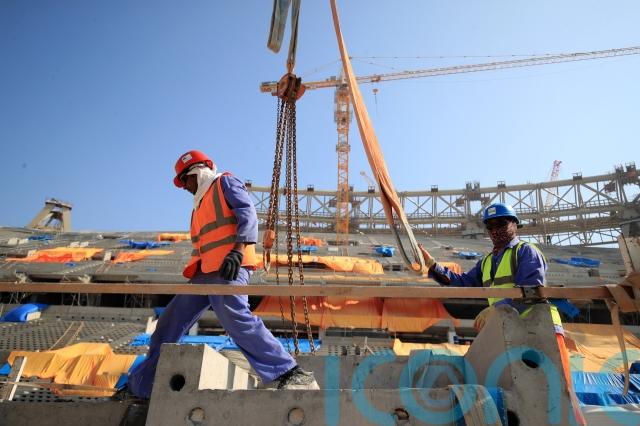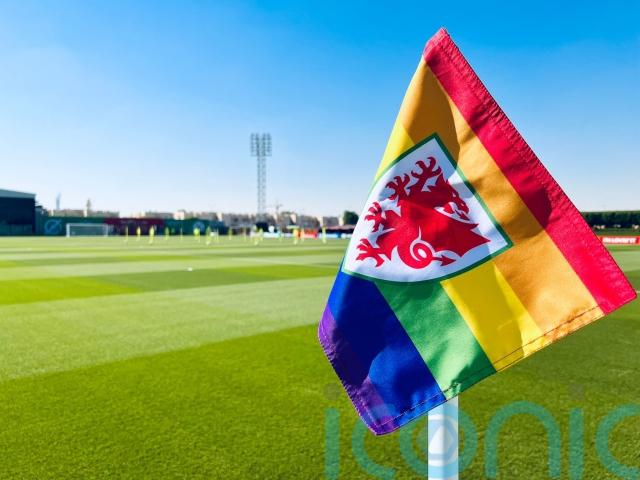
Between 400 and 500 migrants have died as a result of development linked to the Qatar World Cup, the tournament’s chief has claimed.
Hassan Al-Thawadi, secretary general of the Supreme Committee for Delivery and Legacy, gave the figures during an interview on TalkTV’s Piers Morgan Uncensored.
The issue of safety and treatment of migrant workers has been one of the most contentious aspects of the decision to award the tournament to Qatar, and estimates of the casualties have varied wildly.
A report by the Guardian newspaper last year said 6,500 migrant workers had died in Qatar since the Gulf state was awarded the World Cup in 2010 – something that had been “categorically” denied by authorities.
World Cup chief Hassan Al-Thawadi says there were three work-related deaths and 37 non work-related deaths of migrant workers specific to the construction of World Cup stadiums.
"We were committed to being transparent."@piersmorgan | @TalkTV | #PMUQatar pic.twitter.com/Bu3Rhsmmjh
— Piers Morgan Uncensored (@PiersUncensored) November 29, 2022
Speaking to TalkTV, Al-Thawadi said there had been three work-related deaths in construction directly for the tournament and 37 non work-related deaths, but that increased to 400-500 taking in all the infrastructure projects needed to support the hosting of the event.
Al-Thawadi said: “The estimate is around 400, between 400 and 500… I don’t have the exact number. That’s something that’s been discussed.”
He added: “One death is a death too many, plain and simple. I think every year the health and safety standards on the sites are improving, at least on the World Cup sites, the ones that we’re responsible for.
“To the extent that you’ve got trade unions – representatives of the German trade union, the Swiss trade union have commended the work that’s been done on the World Cup sites and the improvement.
“Improvements had to happen. This was something that was recognised before we bid.
“The improvements that have happened aren’t because of the World Cup, these are improvements that we knew we had to do because of our own values, whether it’s in terms of health and safety standards, accommodation standards, dismantling the kafala system (giving companies control over workers’ lives).
“The World Cup served as a catalyst. Because of the spotlight, which we recognised early on was going to be shed, it caused a lot of these initiatives. We’ve got to a position today where our most ardent of critics consider us to be a benchmark in the region.”
Amnesty International called for more transparency from Qatar and for families of casualties to be compensated.
Steve Cockburn, the human rights organisation’s head of economic and social justice, said: “The continued debate around the number of workers who have died in the preparation of the World Cup exposes the stark reality that so many bereaved families are still waiting for truth and justice.

“Over the last decade, thousands of workers have returned home in coffins, with no explanation given to their loved ones. Qatar’s extreme heat and gruelling working conditions are likely to have contributed to hundreds of these deaths but, without full investigations, the true scale of lives lost can never be known.
“Meanwhile, families are suffering the added anguish of severe financial insecurity that comes from losing the main wage earner.
“There is nothing natural about this scale of loss and there can be no excuse for denying families truth, justice and compensation any longer. Until all abuses suffered by migrant workers in Qatar are remedied, the legacy of this World Cup will be severely tarnished by their mistreatment.”
The rights of the LGBTQ+ community has been the other major area of criticism of Qatar, with the issue coming to the fore over the revelation team captains would be given a yellow card for wearing the OneLove armband planned by a number of European nations.
Al-Thawadi insisted that was a FIFA decision and claimed LGBTQ+ people are safe living in and visiting Qatar.

“It’s a decision that FIFA’s made between them and the European nations that became a stand-off, and that was between them,” he said.
“Our position, and my personal position, we’ve always said everybody’s welcome.
“We’ve worked very hard to create an environment and to ensure that people from all parts of the world and all walks of life come to Qatar and engage and interact with people from the Arab world and the Middle East even though you might not necessarily see eye to eye on certain things.
“It’s safe for everybody to be in Qatar. I think it’s safe for everybody to live in Qatar.”
Subscribe or register today to discover more from DonegalLive.ie
Buy the e-paper of the Donegal Democrat, Donegal People's Press, Donegal Post and Inish Times here for instant access to Donegal's premier news titles.
Keep up with the latest news from Donegal with our daily newsletter featuring the most important stories of the day delivered to your inbox every evening at 5pm.